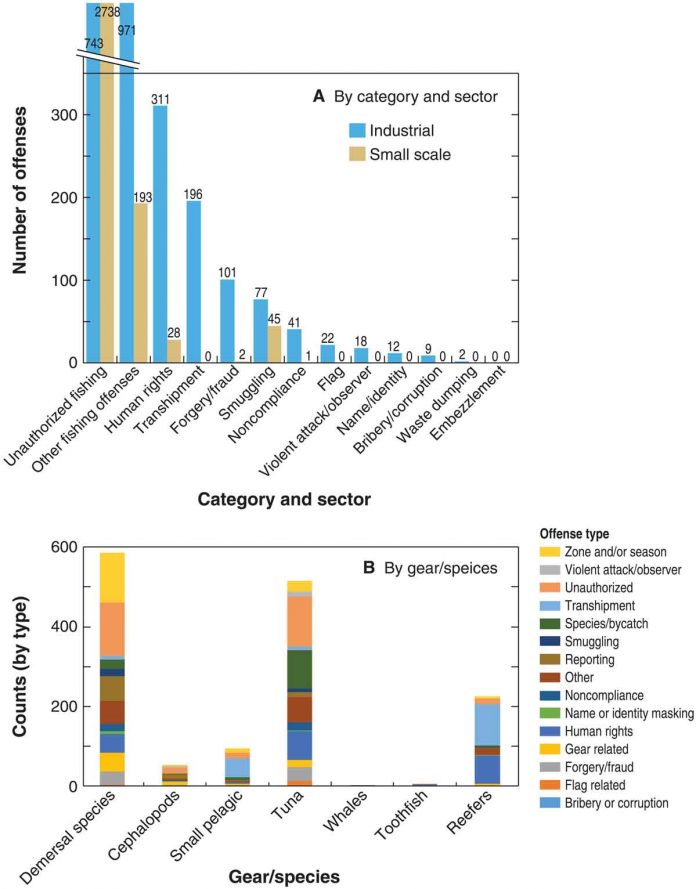Canada’s Nautical Crime Investigation Services and University of British Columbia scientists have conducted an assessment of fishery-related criminal offenses on the world’s oceans. The study was published in the journal Science Advances. In the paper, scientists describe their methods and suggest ways to reduce such activities.
Previous research suggested that criminal activity by people aboard ships around the world is contributing to overfishing in many parts of the world’s oceans. Much of the criminal activity that goes on is not recorded, because of the remote locations. Scientists analysed available data to get a better picture of such criminal activity.
The study involved obtaining access to government reports from around the world. The study also involved data from various non-governmental organizations and media reports. Scientists entered all results into a database they called the Criminal Record of Fishing Vessels. Then they performed a host of different queries on the database and hoped to find patterns or linkages.
Scientists found that approximately a quarter of the value of all seafood products come from illegal fishing activities. Nearly half of the crimes in their database were related to unauthorized fishing. They suggest such activity leads to overfishing and reduced stock in parts of the world’s oceans. They also found offenses that were not directly related to fishing. This includes transport of contraband and human rights abuses like slavery at sea.
Scientists were able to identify the owner of the vessel involved in an offense in 1,700 of the reported instances. Approximately a third of the offenses were committed by personnel aboard just 450 vessels. These represented just 20 countries.
Scientists suggested that there are ways to reduce the number of offenses committed on the high seas. Most of them involve pressuring governmental authorities to crack down on corrupt fishing entities under their jurisdiction. They also said that authorities need to address the full range of crimes that are being conducted in their territorial waters.

